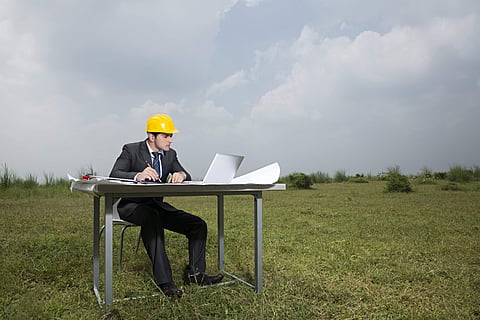

Environmental engineering as a vocation/career is vital for creating and maintaining basic ecosystem services in the world that we reside in, In this VUCA world, confronted by the challenged of urbanisation climate change and resource constraints, Environmental engineering has a critical role to play by contributing a skill set that keeps cities/ communities afloat. Environmental engineering is often considered as a derivative or a major for Civil, Chemical and Biotechnology graduates, as India does not have too many undergraduate environmental engineering programmes apart from a couple in Bengaluru and Solapur. I pursued a Master’s programme in Environmental Engineering from the National University of Singapore, after an undergraduate engineering programme in Biotechnology from Oman.
Environmental engineering, however, is not a linear monolith and has several sub-majors that have tremendous industry/world-ly relevance — Waste Management, Waste Water Treatment, Air Quality Management, Climate Change Adaptation and EHS. As an academic discipline in pedagogy, it is very diverse and this diversity is needed while addressing real-world issues in the market from process engineering to environmental economics India, with its severe stress on resources needs environmental engineers who can negotiate different skill sets and multiple realities. These engineers are interlocutors of conversations between science, economics and law.
The challenge for future environmental engineers would be in reframing the conversation towards solution building. Environmentalists are often perceived as advocacy and research professionals who raise issues and bring them into the limelight, but are limited to suggesting alternatives. This particular disconnect with the market is evident with the chasm in the language used by the two communities of practitioners — the environmentalists and the business community. The focus on the bottom line and the long-term focus on conservation often clash at hierarchies.
The environmental consulting community also tries to bridge the gap but is often limited to being a facilitator in the regulatory sphere — rendering services to the project owners. However, the challenge is to be conversant with a lingo that understands ecosystem issues and the costs with the regulatory drivers. It’s time for the next generation of environmentalists to move beyond the ‘white paper mode’ and actually give workable, practical solutions to industry and policymakers regarding the environmental issues of the day — such as the protracted haze mess in northern India (Delhi’s issues with smog and pollution are a case in point) every winter.
In 2030, the world will be denser and we will be well into the ‘Future of Work’ era in AI. Smart Cities in India will be a norm with Smart Nations of Singapore and Estonia. In the era of the digital age, we will need environmental engineers to research and apply technology solutions for livability, which is a synonym for sustainability. In the imagery of a dystopian future of the Delhis and the Beijings, we will need environmental engineers to ensure that the world is future-ready for the generations to come.
(Manishankar Prasad is an environmental engineer based in Muscat, Oman. He holds a Master’s degree in Environmental Engineering from the National University of Singapore and has studied at the School of Sociology at Nanyang Technological University as a National Research Foundation Scholar of the Singapore Government. He has worked as a sustainability consultant for Fortune 500 companies, public sector clients, start-ups and non-profits in Singapore, Oman, South Sudan and India for about seven years. He specialises in environmental and social impact assessment for civil, wet and renewable infrastructure projects. He has been a panellist for Al Jazeera International and participated in a BBC World Panel Discussion and has been interviewed by Forbes on the emerging issues of the day, including the Food Security Bill and Demonetisation.)
